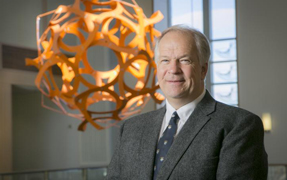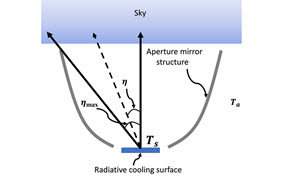SPIE Early Career Achievement Awards
Utkarsh Sharma and Maiken Mikkelsen receive 2017 awards.
Two SPIE members have been named recipients of the 2017 SPIE Early Career Achievement Awards.

SPIE member Utkarsh Sharma, director of the advanced development team at Optovue (USA), has been awarded the SPIE Early Career Achievement Award in Industry, for leadership and innovation, particularly in the successful commercialization of optical coherence tomography (OCT) angiography. He received the award at SPIE Photonics West 2017 in January.
Sharma has “demonstrated an outstanding track record of scientific research, innovation, and technology development that has continued to push the state of the art in the OCT industry,” said SPIE Fellow Stephen A. Boppart of the University of Illinois at Urbana-Champaign (USA).
Sharma pioneered a revolutionary imaging technology now commonly known as OCT-based angiography. Some have called OCT angiography the second imaging revolution in ophthalmology, due to its ability to deliver detailed functional vascular networks in the human retina with contrasting dyes.
The technique may replace current imaging procedures for the detection and treatment of a number of diseases, such as glaucoma, age-related macular degeneration, and diabetic retinopathy.
His contributions in industry are illustrated by the successful commercialization efforts of two technological innovations and 22 patents. His scholarly body of work is well cited, with more than 500 citations, and highlights the wide-ranging impact of his research.
He has developed laser systems, fiber optic sensors, and new OCT imaging technologies for a range of applications, including environmental sensing and medical imaging. His work on development of an OCT imaging technology was one of the key technological advancements in the field of endoscopic OCT technology.
“It is clear to me that Dr. Sharma’s contributions to the imaging community will help detect eye diseases at an early stage, reduce healthcare costs, and improve patient care worldwide,” said SPIE Fellow Ruikang Wang of the University of Washington (USA).
 SPIE member Maiken H. Mikkelsen, the Nortel Networks Assistant Professor of Electrical & Computer Engineering at Duke University (USA), is the 2017 recipient of the SPIE Early Career Achievement Award, Academic. She is being honored for outstanding contributions to the understanding of light-matter interactions and ultrafast emission dynamics in plasmonic systems.
SPIE member Maiken H. Mikkelsen, the Nortel Networks Assistant Professor of Electrical & Computer Engineering at Duke University (USA), is the 2017 recipient of the SPIE Early Career Achievement Award, Academic. She is being honored for outstanding contributions to the understanding of light-matter interactions and ultrafast emission dynamics in plasmonic systems.
“At Duke, she has built from scratch an impressive and advanced laboratory that has allowed her to obtain and publish groundbreaking results on plasmon-enhanced light-matter interactions, including the demonstration of strongly enhanced spontaneous emission rates of quantum emitters,” said 2005 Nobel laureate in physics John L. Hall of the University of Colorado at Boulder (USA).
Her research results have been published in Nature Photonics, Nature Communications, and Nano Letters, focusing significant attention on and impacting the fields of nanophotonics, plasmonics, and quantum optics. Her pioneering contributions are expected to define the future of these fields.
“Maiken is highly deserving of the SPIE Early Career Achievement Award,” said SPIE Fellow N. Asger Mortensen, professor at Technical University of Denmark. “She has already established herself as a leader in the field of quantum nanophotonics. I am deeply impressed with her vision, innovative ideas, understanding of the natural world, and innate ability to identify research areas with the potential for translational breakthroughs.”
Mikkelsen’s work points toward solutions to complex and pressing problems, including faster computers, enhanced communications security, simulation of complex structures, and improved solar cells. David R. Smith, director of the Center for Metamaterial and Integrated Plasmonics at Duke, praised the distinctive perspective Mikkelsen brings to her research.
“Her scientific knowledge and practical applications of engineering are brought together into a single line of research,” he said, bringing “a fresh approach to long-standing challenges in the field.”
Mikkelsen also recently received the Young Investigator Program award from the US Army Research Office and a $2 million research award from the US National Science Foundation.
Mikkelsen will receive her SPIE award 9 August at SPIE Optics + Photonics.
 SPIE AWARDS NOMINATIONS FOR 2018
SPIE AWARDS NOMINATIONS FOR 2018Members of the photonics community may nominate colleagues for a 2018 SPIE award to recognize their outstanding achievements. Nominations may be made through 24 June 2018 and are considered active for three years from the submission date.
Read More about SPIE awards.
- Have a question or comment about this article? Write to us at spieprofessional@spie.org.
- To receive a print copy of SPIE Professional, the SPIE member magazine, become an SPIE member.



